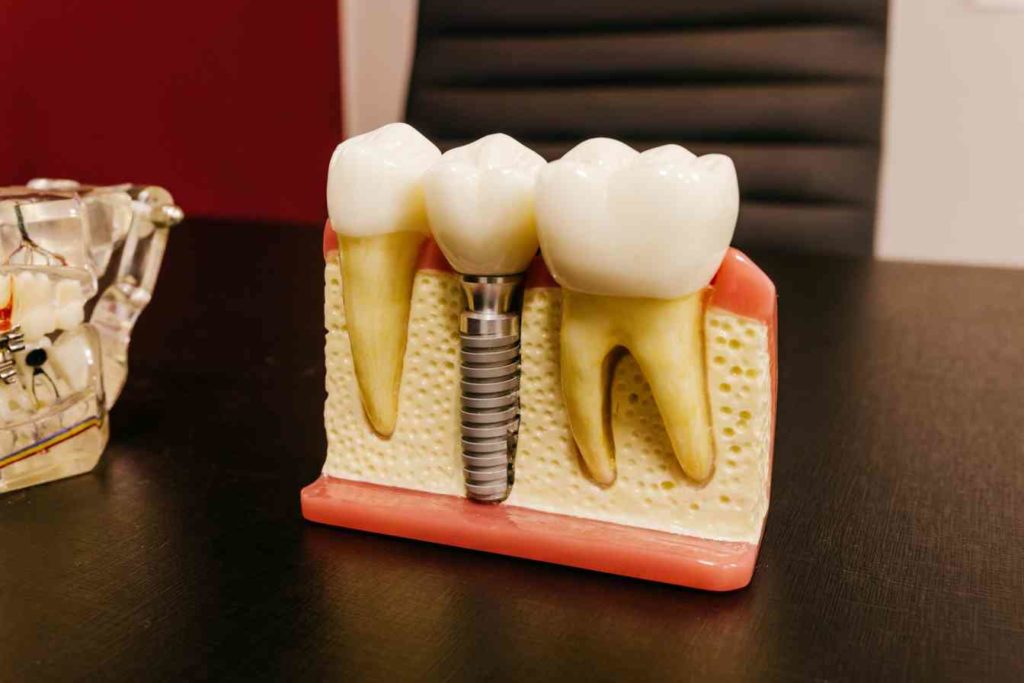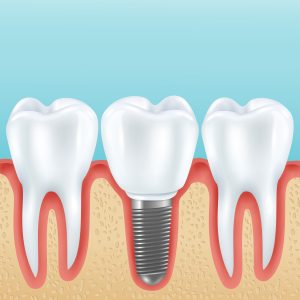Lost a single tooth or a couple of them? In any case, you can get dental implants and fill up the gap. Dental implants are quite common, but you may still have questions. Here we’ll answer the most common ones.

Table of Contents
What are dental implants?
The dental implant is a prosthetic tooth, but very much similar to your real tooth, placed directly in your jaw bone. The costs are greater as compared to other options like bridges, crowns, and dentures because dental implants are a permanent solution with numerous advantages. However, you enjoy these only if you heed to your family dentist’s instructions, and take good care of your teeth.
You can have as many dental implants as required.
What are dental implants made up of?
Most of the dental implants are made up of titanium because there is very little chance that the body would reject it. Titanium fuses quite well with bone tissues and provides good support to replacement teeth.
What should I expect before the process?
Dental implants are successful only when your oral health is in a good condition. If you have any decay or diseases, they have to be treated before you can get an implant. Your dentist may ask you to get an x-ray of your mouth to assess your oral health. You may also have to go through a CT scan so that your bone strength can be determined, and if they are strong enough to handle drilling.
During the process, you may be sedated so that you can remain calm since the procedure involves extensive drilling. Before beginning, your family dentist will discuss all the details with you. If you have any concerns, to raise them.
What does the process involve?
Your dentist will probably give you some anesthesia at the start. Your gum tissue is then cut and pulled away from your jawbone. Your dentist then drills a hole directly into the bone and then slots the titanium implant into the hole. The gum tissue is then laid back again, and fixed in place with stitches. Your implant and jawbone would take around six weeks to fuse together.
Would I need any follow up proceeds?
Your mouth would take time to accept the dental implants, but the success rate is high. Once your bones and the implants have fused together, your dentist would let you know. But before that happens, you do require some follow up procedures.
Initially, you would have to protect your implants, so your dentist would suggest you to avoid biting and chewing from the treated site. Your dentist may fit some temporary dentures or bridges, for which you will have to make multiple visits to the dental clinic.
How many artificial teeth can I get implanted?
Generally, there is no limit to the number of implants that you can get. In fact, your dentist may even recommend a full dental implantation process.
How long would the implants last?
A lifetime, but only if you care for them properly and comply with your dentist’s advice.



